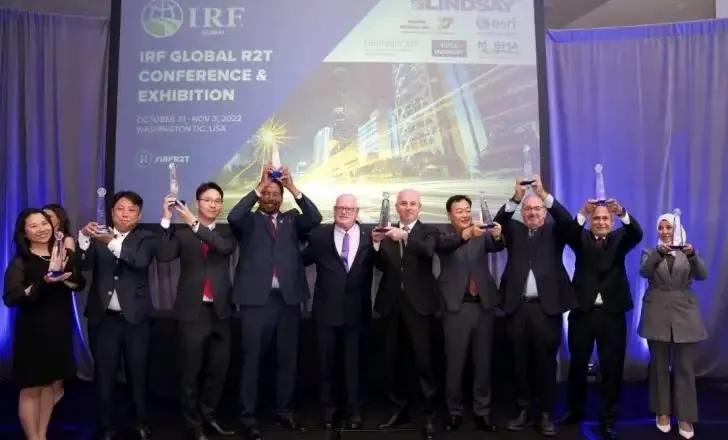The International Transport Forum at the OECD, an intergovernmental organisation for the transport sector that comprises 52 countries, has announced the winner of its 2011 Young Researcher of the Year Award. The Award, which is open to researchers under 35 years of age and carries a prize of US$ 7,000, goes to Canadian national Dr. Jonn Axsen of the University of California at Davis, USA.
April 25, 2012
Read time: 3 mins
RSSThe 998 International Transport Forum at the OECD, an intergovernmental organisation for the transport sector that comprises 52 countries, has announced the winner of its 2011 Young Researcher of the Year Award. The Award, which is open to researchers under 35 years of age and carries a prize of US$ 7,000, goes to Canadian national Dr. Jonn Axsen of the 3880 University of California at Davis, USA.
Axsen’s work was chosen from a short list of four candidates, drawn from 40 entries representing 22 nationalities and research institutions from 16 countries. He will be presented with the 2011 Young Researcher of the Year at the International Transport Forum’s 2011 summit, the annual gathering of transport ministers from around the globe, on 25 May in Leipzig, Germany.
Axsen will be honoured for his contribution on understanding what shapes consumers’ decisions about sustainable mobility choices, such as buying (or not buying) a hybrid or electric car.
In the opinion of the jury, Axsen’s paper merits the award for developing additional criteria that inform mobility decisions. Jurors explicitly commended the innovative dimension of his analysis. “Jonn Axsen’s paper is well suited to change the perspective of politicians responsible for transport and to broaden their basis of decision-making”, said jury representative Dr. Andreas Scheuer, Parliamentary State Secretary, Federal Ministry for Transport, Building and Urban Development.
Policy makers are commonly thought to have only two levers to influence individual mobility decisions: price change and information provision. However, Axsen discovers that mechanisms of social influence are very powerful—such as the roles that friends, family and co-workers can play in an individual’s car purchase decision.
By integrating data from consumer surveys, in-depth interviews, social network observation and even constructive consumer design games with theoretical models of consumer innovation, social construction and identity, Axsen sheds light on the process and importance of social influence.
As a case study, Axsen looks at consumer experiences with plug-in hybrid vehicles (PHEVs) in California. Car buyers were seen to consult their friends, families and even strangers to determine the benefits of PHEVS, such as perceptions of cost savings, reliability, environmental impact, and the ability to convey a pro-environmental message to others.
Further, Axsen’s research shows that social discussions of PHEV technology can also influence car buyers’ core values and identity, such as whether they consider themselves to be pro-environmental. Such shifts towards environmental values occurred in several households, particular when the car buyer found social support among important reference groups, such as family or co-workers.
To capture value change, argues Axsen, behavioural models should account for the social nature of consumer perceptions, as well as the potential for dynamics in their sense of identity and lifestyle. Capturing these social influences will improve policymaker’s understanding of how to motivate consumers to value sustainable mobility choices.
Axsen’s work was chosen from a short list of four candidates, drawn from 40 entries representing 22 nationalities and research institutions from 16 countries. He will be presented with the 2011 Young Researcher of the Year at the International Transport Forum’s 2011 summit, the annual gathering of transport ministers from around the globe, on 25 May in Leipzig, Germany.
Axsen will be honoured for his contribution on understanding what shapes consumers’ decisions about sustainable mobility choices, such as buying (or not buying) a hybrid or electric car.
In the opinion of the jury, Axsen’s paper merits the award for developing additional criteria that inform mobility decisions. Jurors explicitly commended the innovative dimension of his analysis. “Jonn Axsen’s paper is well suited to change the perspective of politicians responsible for transport and to broaden their basis of decision-making”, said jury representative Dr. Andreas Scheuer, Parliamentary State Secretary, Federal Ministry for Transport, Building and Urban Development.
Policy makers are commonly thought to have only two levers to influence individual mobility decisions: price change and information provision. However, Axsen discovers that mechanisms of social influence are very powerful—such as the roles that friends, family and co-workers can play in an individual’s car purchase decision.
By integrating data from consumer surveys, in-depth interviews, social network observation and even constructive consumer design games with theoretical models of consumer innovation, social construction and identity, Axsen sheds light on the process and importance of social influence.
As a case study, Axsen looks at consumer experiences with plug-in hybrid vehicles (PHEVs) in California. Car buyers were seen to consult their friends, families and even strangers to determine the benefits of PHEVS, such as perceptions of cost savings, reliability, environmental impact, and the ability to convey a pro-environmental message to others.
Further, Axsen’s research shows that social discussions of PHEV technology can also influence car buyers’ core values and identity, such as whether they consider themselves to be pro-environmental. Such shifts towards environmental values occurred in several households, particular when the car buyer found social support among important reference groups, such as family or co-workers.
To capture value change, argues Axsen, behavioural models should account for the social nature of consumer perceptions, as well as the potential for dynamics in their sense of identity and lifestyle. Capturing these social influences will improve policymaker’s understanding of how to motivate consumers to value sustainable mobility choices.









